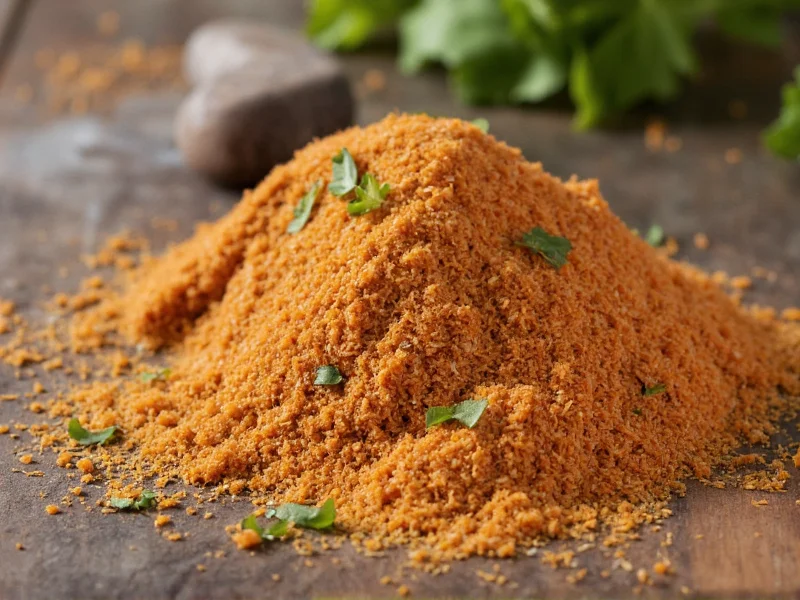Many home cooks encounter confusing culinary terms, and “legiterally seasoning” represents a perfect example of language evolution meeting kitchen practices. This term doesn’t exist in professional culinary vocabulary—it’s almost certainly a mashup of “literally” (frequently misused online as an intensifier) and actual seasoning techniques. When exploring common seasoning terminology mistakes in home cooking, this confusion highlights how internet language can bleed into practical kitchen knowledge.
Understanding the Terminology Confusion
The phrase “legiterally seasoning” likely originates from two sources: the rampant misuse of “literally” as an intensifier (e.g., “I was literally starving”) and potential confusion with “legume” (referring to beans, lentils, and peas). Neither combination creates a legitimate culinary technique. Professional chefs and culinary educators consistently emphasize proper seasoning terminology for home cooks to avoid such misunderstandings.
Seasoning, in actual culinary practice, refers to enhancing food’s flavor through salt, herbs, spices, acids, and other flavor agents. The process involves both science and art—understanding when to apply different seasonings and how they interact with various ingredients. Confusing terms like “legiterally seasoning” can lead to recipe misinterpretation and cooking errors.
What Actual Seasoning Techniques Should You Know?
Instead of searching for non-existent terms like “legiterally seasoning,” focus on mastering these fundamental seasoning approaches:
| Seasoning Technique | Best Used For | Timing Tips |
|---|---|---|
| Dry brining | Meats, poultry | Apply 12-48 hours before cooking |
| Layered seasoning | Sauces, soups, stews | Season at multiple cooking stages |
| Finishing salts | Finished dishes | Immediately before serving |
| Acid balancing | All savory dishes | Final adjustment before serving |
Common Seasoning Terminology Mix-Ups
Beyond the “legiterally seasoning” confusion, several other culinary terminology misunderstandings frequently trip up home cooks:
- “Seasoning” vs. “flavoring” – While often used interchangeably, seasoning specifically refers to enhancing natural flavors, while flavoring adds new flavor dimensions
- “Marinating” vs. “rubbing” – Marinating involves liquid solutions, while dry rubs use spice blends without liquid
- “Deglazing” vs. “sauces” – Deglazing specifically refers to using liquid to release fond (browned bits) from cookware
Practical Seasoning Guidance for Home Cooks
When following recipes, precise terminology matters. If a recipe instructs you to “season to taste,” this means adding salt and pepper incrementally while tasting—not applying random spices. Understanding proper culinary seasoning terms prevents kitchen disasters and elevates your cooking.
Professional chefs recommend these seasoning fundamentals:
- Always season in layers—begin with foundational seasoning early in cooking, then adjust at the end
- Use kosher salt for most seasoning tasks (it’s easier to control than fine table salt)
- Remember that fat carries flavor—season oils and fats along with ingredients
- Acids (vinegar, citrus) should be the final seasoning adjustment before serving
- Spice toasting dramatically enhances flavor profiles before grinding
Avoiding Seasoning Terminology Errors
To prevent confusion like the legiterally seasoning meaning misconception, develop these habits:
- Cross-reference unfamiliar terms with reputable culinary resources
- Understand that “literally” should only be used when something is factually true, not as emphasis
- Learn the difference between similar-sounding terms (e.g., “legume” vs. “literally”)
- When in doubt, consult multiple recipe sources for consistent terminology
Mastering correct seasoning terminology for cooking transforms your kitchen experience. Instead of searching for non-existent terms like “legiterally seasoning,” focus on building genuine culinary knowledge that translates to better meals and clearer recipe comprehension.
Frequently Asked Questions
What does “legiterally seasoning” actually mean?
“Legiterally seasoning” is not a real culinary term. It appears to be a common misspelling or confusion between “literally” (frequently misused online as an intensifier) and proper cooking terminology. No professional culinary resource recognizes this as a legitimate seasoning technique.
Is “legiterally” a real word in cooking terminology?
No, “legiterally” is not a recognized word in culinary or standard English vocabulary. It seems to be an internet-era misspelling of “literally,” which itself is frequently misused as an intensifier online. In professional cooking contexts, precise terminology matters, and this term doesn’t appear in any culinary textbooks or resources.
What’s the difference between seasoning and flavoring?
While often used interchangeably, seasoning specifically enhances a food’s natural flavors (typically with salt, pepper, and herbs), while flavoring adds entirely new flavor dimensions (like extracts, artificial flavors, or strong spices). Proper understanding of this seasoning vs flavoring difference is crucial for recipe execution.
How can I avoid common seasoning terminology mistakes?
To avoid common seasoning terminology mistakes in home cooking, consult reputable culinary resources, understand that “literally” should only be used for factual statements (not emphasis), and verify unfamiliar terms across multiple professional cooking sources before applying them in your recipes.
What are the most important seasoning techniques for beginners?
Beginners should focus on mastering layered seasoning (adding salt throughout cooking), proper salt selection (using kosher salt for control), acid balancing (using vinegar or citrus as a final touch), and understanding when to apply dry rubs versus wet marinades. These fundamental seasoning techniques form the foundation of flavorful cooking without needing to understand confusing terms like “legiterally seasoning.”











 浙公网安备
33010002000092号
浙公网安备
33010002000092号 浙B2-20120091-4
浙B2-20120091-4